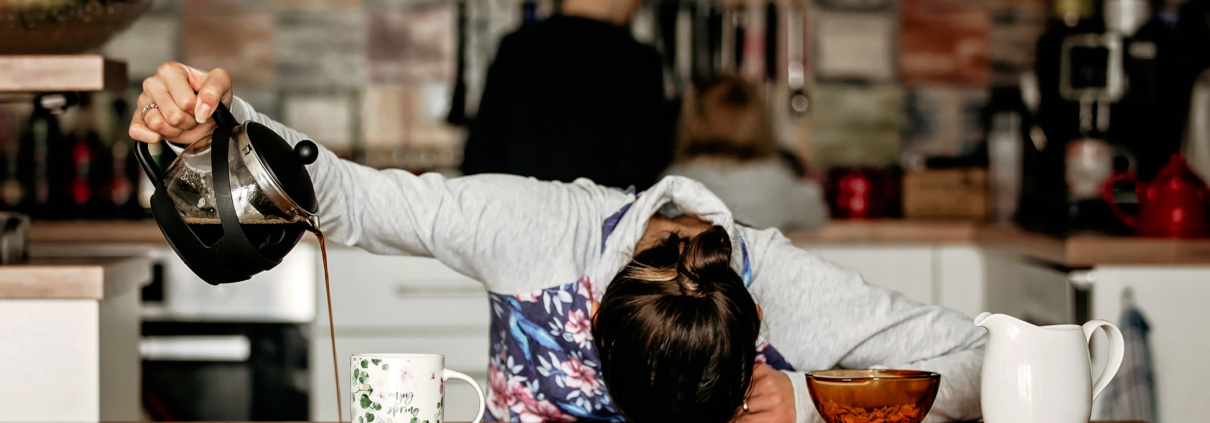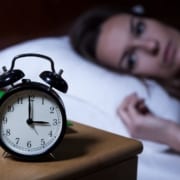World Sleep Day – could a lack of sleep be making you fat?
On World Sleep Day we thought we’d examine to link between poor sleep and weight gain.
Sleep isn’t what necessarily springs to mind when it comes to addressing weight issues. Blame is much more likely to be laid at the door of diet and exercise.
But, according to the NHS, people who sleep less than 7 hours a day tend to gain more weight and have a higher risk of becoming obese than those who hit that 7 hours.
So why might that be?
- Tiredness makes you crave sugar and stodgy comfort food.
- It impacts your willpower to make healthy choices.
- You are less likely to have the energy (or inclination) for exercise.
- A lack of sleep has been found to trigger a rise in the hormone ghrelin (closely related to hunger) and prompt decreased levels of leptin (associated with feeling full). This can lead to increased hunger and appetite, which makes overeating more likely.
As we explored in a previous blog – tackling a patient’s weight is not an easy topic for any Practitioner. But experienced Osteopath, Robin Kiashek, feels it would be remiss of him to treat a musculoskeletal issue without discussing body weight in situations where the patient is clearly heavier than is healthy.
Robin says: “Whatever the problem that brings a patient to my door, I always take time to explore their lifestyle. It’s vital if I’m going to address the problem effectively at its root. These conversations may reveal poor lifestyle choices around food and exercise or habits that are impacting on the patient getting a full night’s sleep. It’s very easy to get into bad habits without necessarily realising the potential physical impact they can have.”
So, how can you improve your night’s sleep?
We’ve covered how a lack of sleep can negatively impact you. But what can you do on a practical level to improve your slumber? Robin has a few tops tops:
- Don’t go to bed on a full stomach – avoid heavy or large meals within a few hours of bedtime. They can lead to discomfort and keep you awake.
- Avoid alcohol before bed – initially it may make you sleepy but can cause wakefulness after a couple of hours and make it difficult to get back off again.
- Stop the stimulants – caffeine and nicotine are best avoided in the run up to bedtime. The effects of caffeine can last for up to 8 hours, so that late afternoon coffee could be causing a problem.
- Create a calm environment – cool, dark and quiet are the ideal elements to promote a good night’s sleep.
- Develop a wind down routine – calming activities such as taking a bath, reading a book or performing relaxation techniques could all aid sleep.
- Timing is key – try to go to bed and get up at the same time every day to reinforce your body’s sleep/wake cycle.
- Power down – switch off computers and phones at least an hour before bed.
And don’t forget the bed
Of course, you can have the best sleep routine in the world but if you’re trying to get your shut eye on a saggy mattress or pull-out bed then you may continue to struggle. Obviously not everyone has the budget for a top-of-the-line sleep station, but it is worth considering:
- Pillow perfection – make sure your pillow is the correct size and firmness for you. It should fit snuggly into your neck and shoulders so that it fully supports your head.
- Check that mattress – the recommended lifespan of a mattress is eight years so it might be time for a trip to the shops.
- It’s all about the base – your mattress of choice also needs support. Placing a mattress on slats will impact how long it lasts. Consider investing in a divan – which is itself sprung – as a base for your mattress.
If you are feeling the effects of lack of sleep or perhaps have a musculoskeletal issue that’s keeping you awake, then why not book an appointment with Robin?







Leave a Reply
Want to join the discussion?Feel free to contribute!